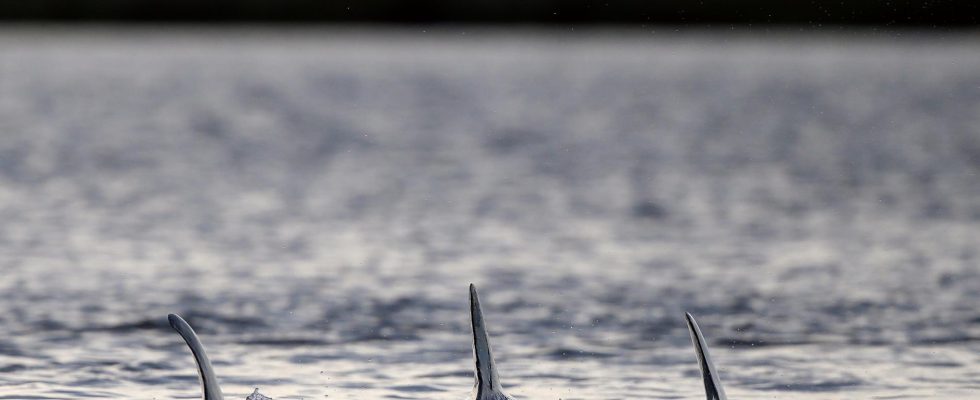Published: Less than 30 min ago
A dead dolphin has washed ashore on a beach in Varberg. It is the third time this year that a dolphin has been found on Swedish beaches – something very unusual.
According to Karin Olofsson-Sannö, assistant state veterinarian at the Norwegian Veterinary Institute (SVA), it is unusual for SVA to bring in dolphins for examination.
– There are three this year and that is unusual, and that we at SVA receive three has never happened before, as far as I know, she says.
The first two dolphins, which were also washed ashore in southwestern Sweden, were of the species saddled dolphin and white-nosed dolphin.
What species the third belongs to is not known for sure until it has been examined.
The species sometimes visit Swedish waters, like many other marine mammals.
– We had a sea turtle last year and sometimes we can have killer whales in the summer, but that’s not something you should expect, says Karin Olofsson-Sannö.
What attracted the dolphins to Sweden already in April, when the water is still cold, is difficult to say.
– But it is absolutely clear that climate change is changing the lives of our wild animals and their behaviour. They often follow the food.
What the dolphin died of will be investigated after it has been transported to SVA in Uppsala.
Facts
Marine mammals in Swedish waters
Mammals that live in Swedish waters:
Seals: In Swedish waters, there are three permanent species of seal: harbor seal, gray seal, and angler.
The harbor seal is mainly found on the west coast, but also a small red-listed population in the Baltic Sea.
The gray seal is mainly found in the Baltic Sea, but also occurs on the west coast.
The vikaren is found in the Gulf of Bothnia, and is the species with the northernmost distribution.
Whales: The porpoise is the only cetacean resident in Swedish waters. There are three populations in Swedish waters, and the Baltic porpoise is classified as critically endangered and has been red-listed since 2020. They are estimated at around 500 animals, but uncertainty is great. The Baltic Sea population and the Skagerrak population (which is also found in the North Sea) are both significantly larger and not threatened.
Although porpoises are Sweden’s only resident whale, several whale species are observed annually in Swedish waters.
Source: The Norwegian Veterinary Medical Institute
Read more
